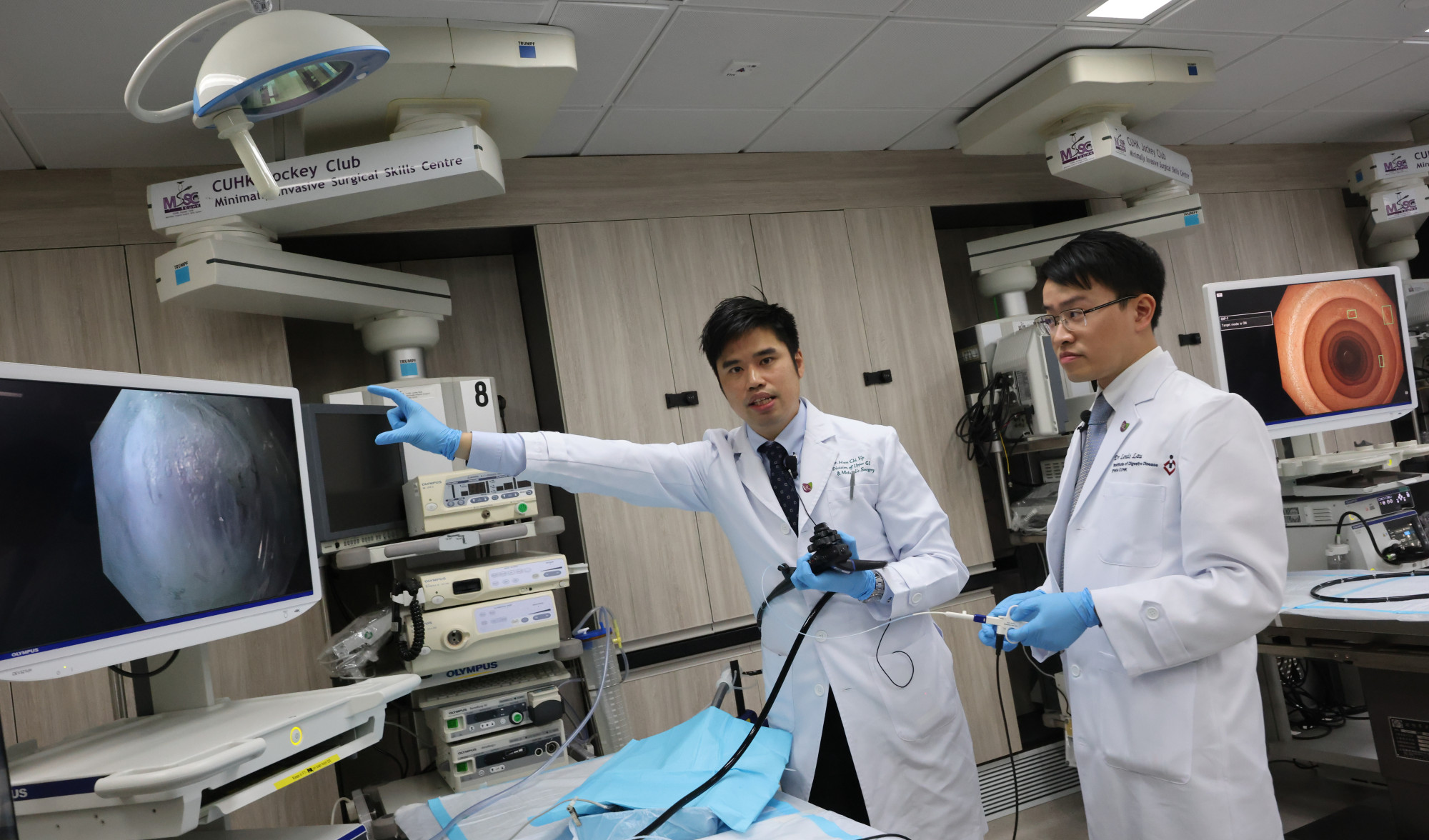
‘Extra pair of eyes’: Chinese University of Hong Kong team says AI helps junior doctors better spot colon tumours in cancer fight
- AI tool especially good at identifying ‘smaller growths which might otherwise go undetected’ and progress to cancer if missed, research team says
- In Chinese University of Hong Kong tests involving 766 patients, junior doctors using AI fared better at spotting smaller growths during colonoscopies
Researchers at the Chinese University of Hong Kong’s medical faculty have found that artificial intelligence (AI) can help less experienced doctors better spot tumours during colonoscopies.
AI was especially good at helping them identify smaller growths called adenomas, which might otherwise go undetected, Dr Louis Lau Ho-shing, an assistant professor of medicine and therapeutics, said.
He added the team hoped use of AI would reduce the “miss rate” in spotting such lesions.

In a traditional colonoscopy, an endoscope, a device with a tiny camera, provides video footage for the doctor to examine the patient’s colon, the large intestine.
Lau said traditional colonoscopies required “a high level of multitasking” and doctors who were fatigued or less experienced risked missing smaller lesions.
“If these are missed, there is a chance they can progress to cancer in future,” he said.
Lau added the AI tool acted like “an extra pair of eyes” by identifying potential tumours in the video footage.
Colorectal cancer is the second most common form of the disease and the second-highest cause of all Hong Kong cancer deaths after lung cancer.
The city logged 5,899 new cases in 2021, accounting for 15.3 per cent of all new reported occurrences of the disease that year. The government runs a subsidised screening programme for residents aged between 50 and 75.
The medical faculty, which has studied ways to use advanced technology in cancer treatment for almost 20 years, started to use AI in colonoscopies in 2021.
Previous studies showed AI could help experienced doctors improve their tumour detection rates, but none had explored whether the technology might benefit those who were less experienced.
The research team recruited 22 junior doctors – those who had done fewer than 500 colonoscopies each – between April 2021 and July 2022 to perform the procedure on 766 patients, with 386 using the AI tool and the rest done conventionally.
Their results, published earlier this year, showed that the group using AI had an adenoma detection rate of 57.5 per cent, compared with 44.5 per cent for the others.
The tool was found to be especially useful in the detection of small tumours under 5mm in diameter.
The doctors who used AI had about a 40 per cent detection rate compared with just 25 per cent for the others. For medium-sized tumours, the detection rates were about 36 per cent and 29 per cent respectively.
Newer doctors who had performed fewer than 200 colonoscopies benefited the most, with those using AI hitting a 60 per cent detection rate compared with around 42 per cent for the rest.
Lau said a few of the city’s public hospitals had bought the AI detection tool, but no guidelines had been issued governing its application. He added he hoped the study’s findings would result in its wider adoption.
The medical faculty has also developed an AI-based platform called AI-Endo to help train doctors to perform early stage gastrointestinal cancer surgery.
The procedure allows patients with stage one tumours to have them removed without undergoing invasive surgery, but it is tricky to perform and demands a high level of skill.
A doctor at present might need to do nearly 100 operations before becoming competent, Dr Yip Hon-chi, an assistant professor of surgery, said.
He added he hoped AI-Endo would reduce the time or number of operations needed for less experienced doctors to master the procedure.
The tool, which took about two years to build, helps doctors to predict the steps needed for the surgery in real time and can also generate a post-operation report.
The university’s medical and computer science and engineering departments collaborated to develop AI-Endo, using 12 years’ worth of surgical statistics, which the team said they believed might be among the largest sets of such information in the world.
Yip said the team aimed to begin the use of AI-Endo in clinical trials next year.

